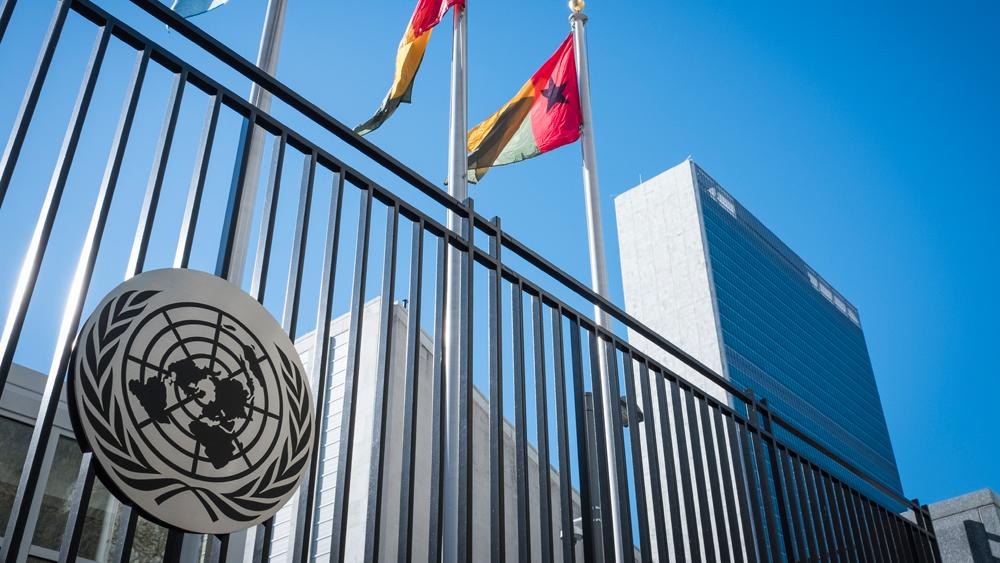Statement by First Deputy Permanent Representative Dmitry Polyanskiy at the United Nations Security Council Arria Formula meeting “The threat to international peace and security posed by the illicit trade in small arms and light weapons”
Mr.President,
From the outset I would like to congratulate our Mexican friends on their national holiday – Mexico’s Independence Day, and thank for convening this meeting. You have to work on a holiday, which is a challenging task. We will try to not complicate it.
Today I am going to make certain remarks with regard to the Russian position on the issue at hand. However, I would like to point out from the very beginning that for us the primacy of the UN General Assembly in the UN discussions of small arms and light weapons (SALW) is unchallenged. In contrast, discussing SALW in the Security Council as a stand-alone generic issue will hardly have any value added. In our view, currently there is no need for the Council to engage into discussions on this topic, unless Council-mandated arms embargoes in specific countries or regions are violated. We strongly believe that specialized sanction committees have all the necessary tools at their disposal to tackle such matters.
Mr.President,
The Russian Federation traditionally approaches the issue of countering the illicit trade in SALW as a priority. SALW remain one of the most widely used type of weapons in regional and local conflicts. It surpasses other weapon categories by digits in terms of death toll. Terrorist and organized criminal groups master new ways to expand illegal stockpiles of SALW. Their criminal activity is usually focused on the regions and countries with high political instability. As the result, it is the civilian population that suffers the most. Unfortunately, we can see this in many regions of the world, for instance in Africa, South America and Middle East.
Regrettably, uncontrolled distribution of SALW is typically driven by far too liberal national regulations in this field or by remaining breaches at national export control regimes.
The risks of SALW falling into the hands of unauthorized recipients, in particular non-state actors, are mounting. In many instances, suppliers, blinded by mere profits or political alignments, completely disregard potential implications for the end-use of these SALW. Nor do they care about who will gain control over these stockpiles in the end. In addition, some countries with excessive stockpiles of SALW instead of due elimination process rush to sell these excesses without necessary precautions and proper selection of future buyers. Many brokers in the arms market also tend to evade their due responsibilities.
Another serious challenge is the production of SALW under expired licenses or without a license granted by the owners of the technologies. Such SALW are exported to third countries, usually in a secret manner. It is obvious that all this aggravates the risks of proliferation of SALW to undesirable recipients, including terrorists, extremists, illegal armed groups or organized crime, as well as countries subject to arms embargoes imposed by the UN Security Council.
For decades Russia has consistently supported the efforts to enhance the role of the United Nations in this field. The General Assembly is the key negotiation format to handle the whole range of issues relating to SALW. The UN Programme of Action to Prevent, Combat and Eradicate the Illicit Trade in SALW (PoA) remains the only international document specifically tailored to combat the illicit trade in SALW. All Member States should contribute to its full implementation.
The Seventh Biennial Meeting of States (BMS7) on the implementation of the PoA this July was yet another step towards this goal. Russia was actively engaged in all BMS7 deliberations. We appreciate the efforts of the Kenyan Chairmanship and its able leadership, which enabled this meeting to produce a well-balanced outcome document.
To follow up, we believe that Member States could consider the adoption of the following national measures to contribute to the implementation of the PoA.
First, to introduce a universal ban on transfer of all kinds of SALW to the actors who are not authorized by the governments of recipient countries.
Second, to maintain strong regulation and direct state control over broker activities in the field of arms trade within national jurisdiction as well as to limit the number of such broker agents to the bare necessary minimum.
Third, to introduce a ban on re-export or passing over of imported SAWL without written consent of the country that originally exported it.
Fourth, to prevent the manufacturing of SALW under expired licenses or without a license from the owner of the technology. This includes measures to counter the malpractices when a weapon, which was previously manufactured under a license, is slightly modified without the original developer’s consent and then is exported as an original product.
To conclude, I would like to reiterate that it is a sovereign prerogative of Member States to manage circulation and stockpiling of SALW, to determine optimal standards for their physical security, marking and stockpiling, as well as to choose methods and technologies for eliminating the excesses of these weapons.
Thank you.
